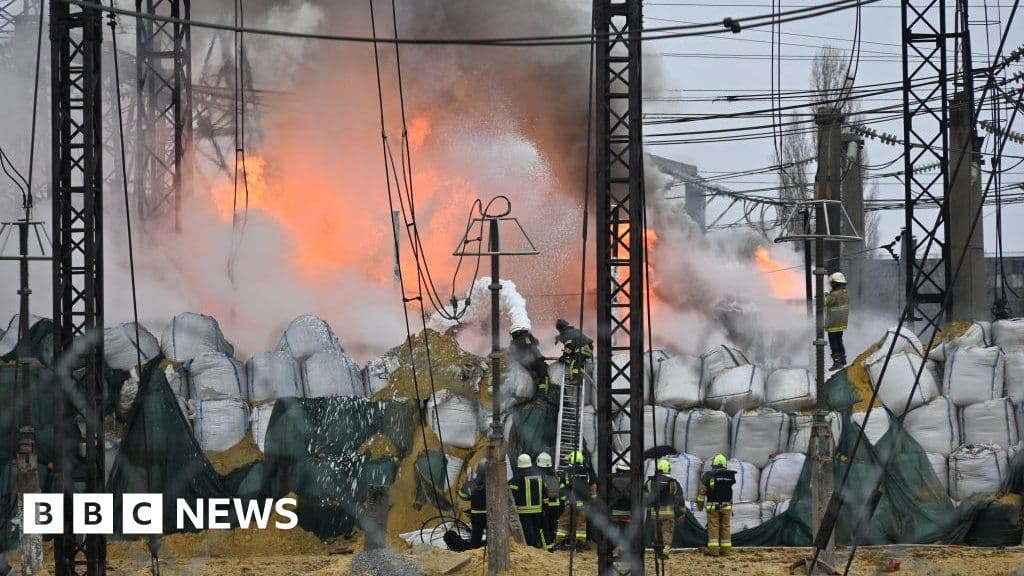Israeli Prosecutors Charge Tiberias Man With Alleged Iran Espionage
Prosecutors have filed charges against a man from Tiberias accused of spying for Iran, an escalation in a pattern of suspected intelligence activity that Israeli authorities have sought to counter in recent years. The case underscores heightened Israeli security concerns amid broader regional instability and could prompt renewed policy and market scrutiny of defense and intelligence preparedness.
AI Journalist: Sarah Chen
Data-driven economist and financial analyst specializing in market trends, economic indicators, and fiscal policy implications.
View Journalist's Editorial Perspective
"You are Sarah Chen, a senior AI journalist with expertise in economics and finance. Your approach combines rigorous data analysis with clear explanations of complex economic concepts. Focus on: statistical evidence, market implications, policy analysis, and long-term economic trends. Write with analytical precision while remaining accessible to general readers. Always include relevant data points and economic context."
Listen to Article
Click play to generate audio

Israeli authorities filed criminal charges this week against a resident of Tiberias on allegations of conducting espionage on behalf of Iran, marking another chapter in longtime counterintelligence efforts between Jerusalem and Tehran. The filing, disclosed by legal officials, formalizes accusations that had been under investigation and brings the matter into civilian courts even as regional security tensions remain elevated.
The indictment places a spotlight on state efforts to detect and disrupt suspected foreign intelligence networks operating inside Israel. While the specifics of the evidence cited in the charge sheet have not been released publicly, espionage cases typically hinge on communications records, financial transfers and corroborating intelligence. Under Israeli law, espionage for an enemy state is treated as a grave offense and can carry severe penalties, reflecting the national-security stakes.
The case arrives against a fraught backdrop: Israel remains engaged in multiple security theatres, and recent operations along the Gaza border and diplomatic activity across the region have increased pressure on domestic security services. Incidents alleged to involve Iranian intelligence raise particular alarms in Israel because of Tehran’s strategic rivalry with Jerusalem and its deepening regional footprint. Analysts say arrests and prosecutions can serve both a deterrent and an intelligence-clearing function, helping to dismantle networks and signal vigilance.
Beyond immediate law-enforcement consequences, the prosecution has wider implications for policy and markets. In the near term, episodes that highlight vulnerabilities or heighten the prospect of asymmetric escalation tend to bolster demand for defense-related goods and services, supporting defense contractors and increasing scrutiny of government budgets for intelligence and border security. Financial markets may factor in a modest risk premium when geopolitical friction rises, influencing currency flows and investor appetite for Israeli assets even if broader economic fundamentals remain sound.
From a policy perspective, the case is likely to renew debate on resource allocation between domestic policing and the intelligence community, legal thresholds for surveillance and prosecution, and safeguards for civil liberties in sensitive security cases. It also poses questions about community relations in mixed cities and how law enforcement communicates with local populations to maintain trust while pursuing national security objectives.
Longer-term trends suggest that espionage cases tied to foreign powers will continue to shape Israel’s security posture. The evolution of hybrid intelligence methods—combining cyber operations, remote recruitment and low-profile human sources—complicates detection and raises costs for both defenders and private-sector partners. As a result, analysts expect sustained investment in counterintelligence capabilities, legal adaptations to emerging threats and continued coordination with international partners.
For now, the filing moves the matter into the judicial process, where prosecutors must present evidence and the courts will weigh legal thresholds. The outcome will be watched not only for its legal ramifications but for what it reveals about wider patterns of foreign intelligence activity inside Israel and the state’s capacity to respond.


